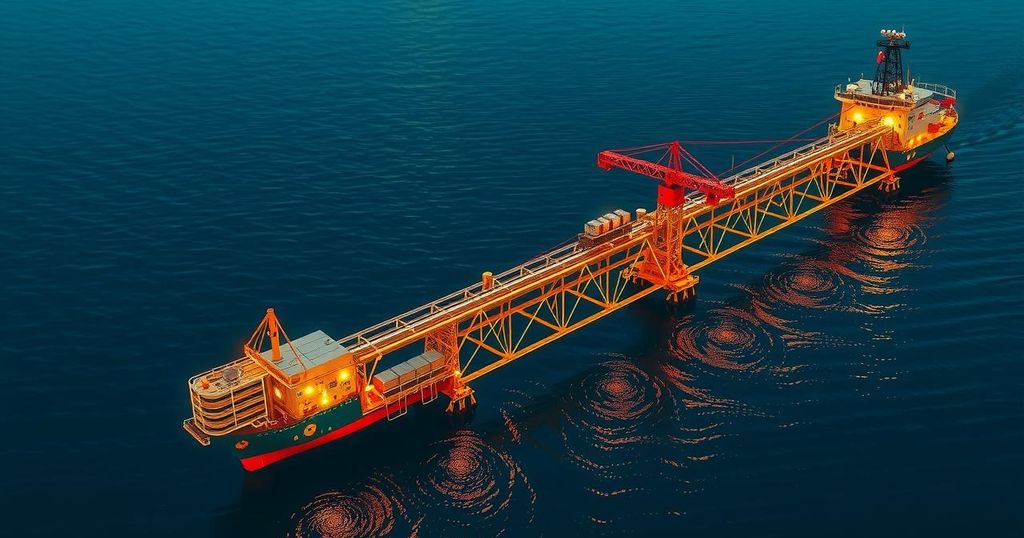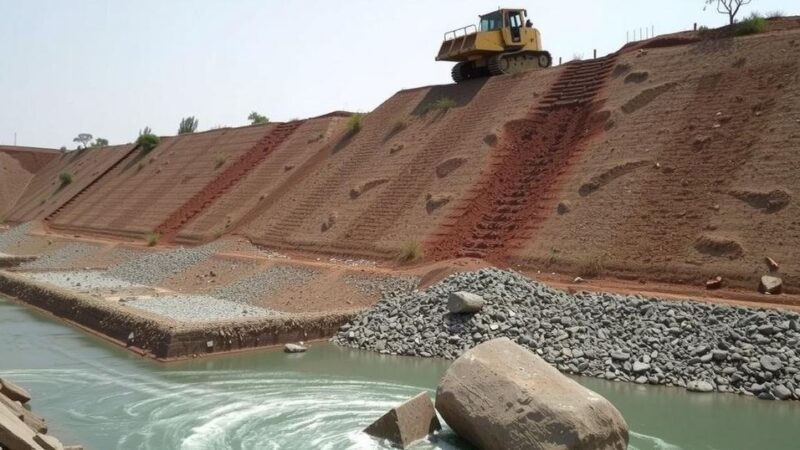Brazil’s Grupo Matrix Energia and Argentina’s TotalEnergies have partnered with Bolivia’s YPFB to transport gas from Argentina’s Vaca Muerta shale. Signed on November 22, the agreement leverages Bolivia’s transportation infrastructure to enhance regional energy integration and support Argentine gas exports to Brazil. Concurrently, YPF plans to merge its LNG operations to boost production and aims for significant financing for its Vaca Muerta Sur pipeline project.
Brazil’s Grupo Matrix Energia and Argentina’s TotalEnergies have officially finalized their first agreement with YPFB, Bolivia’s state-owned energy enterprise, facilitating the transportation of natural gas sourced from Argentina’s Vaca Muerta shale reserves. This initiative, signed on November 22, enhances regional supply stability by leveraging Bolivia’s existing transportation infrastructure. The deal is pivotal for allowing Argentine gas to flow into Brazil, thereby fostering improved energy cooperation across South America.
The partnership aims to effectively navigate Bolivia’s declining gas exports while positioning Argentina as a competitive natural gas exporter. Despite holding the world’s second-largest shale gas reserves, Argentina is still in the process of establishing a comprehensive pipeline system alongside the necessary contractual frameworks for tariff negotiations. The agreement enables YPFB’s gas transport subsidiaries to control the transit of natural gas via an extensive 1,000-kilometer pipeline network that connects the two nations.
In addition to the transportation contract, TotalEnergies and Grupo Matrix Energia have finalized a sales purchase contract. Furthermore, YPFB confirmed that TotalEnergies has acquired permits to export natural gas from the Austral and Neuquen Basins to Brazil, marking a significant advance in regional energy collaboration. Concurrently, YPF is reportedly merging its liquefied natural gas (LNG) initiatives with Pan American Energy Group and Golar LNG, aiming to bolster its production capabilities and enhance Argentina’s footprint within the global LNG sector.
YPF anticipates securing $2 billion in financing for its Vaca Muerta Sur pipeline project by the second quarter of 2025, which aims to transport an additional 390,000 barrels per day from the Vaca Muerta formation to a coastal terminal in Rio Negro province, Argentina. This project is under the management of Vaca Muerta Oil Sur, an entity led by YPF.
These developments underscore the evolving dynamics of natural gas supply in South America, highlighting cooperation between nations to optimize resources and strengthen energy security.
The energy landscape in South America is rapidly changing with Argentina and Brazil collaborating on gas transportation initiatives. Vaca Muerta, one of the world’s richest shale gas formations located in Argentina, presents significant export potential. As Bolivia’s exports decline, the agreement with YPFB is integral for enabling Argentine gas to flow to Brazil, thereby enhancing energy integration in the region. Additionally, the construction of pipelines and acquisition of export permits are crucial steps in establishing a seamless supply chain for natural gas across borders.
The recent partnership between Brazil, Argentina, and Bolivia signifies a strategic move towards improved regional energy cooperation and stability. By facilitating the transport of natural gas from Argentina’s Vaca Muerta formation, stakeholders are not only addressing supply challenges but are also paving the way for enhanced exports and strengthened energy security in South America. These developments, along with ongoing investments in infrastructure, underscore the importance of collaboration among nations in optimizing energy resources.
Original Source: www.offshore-technology.com







